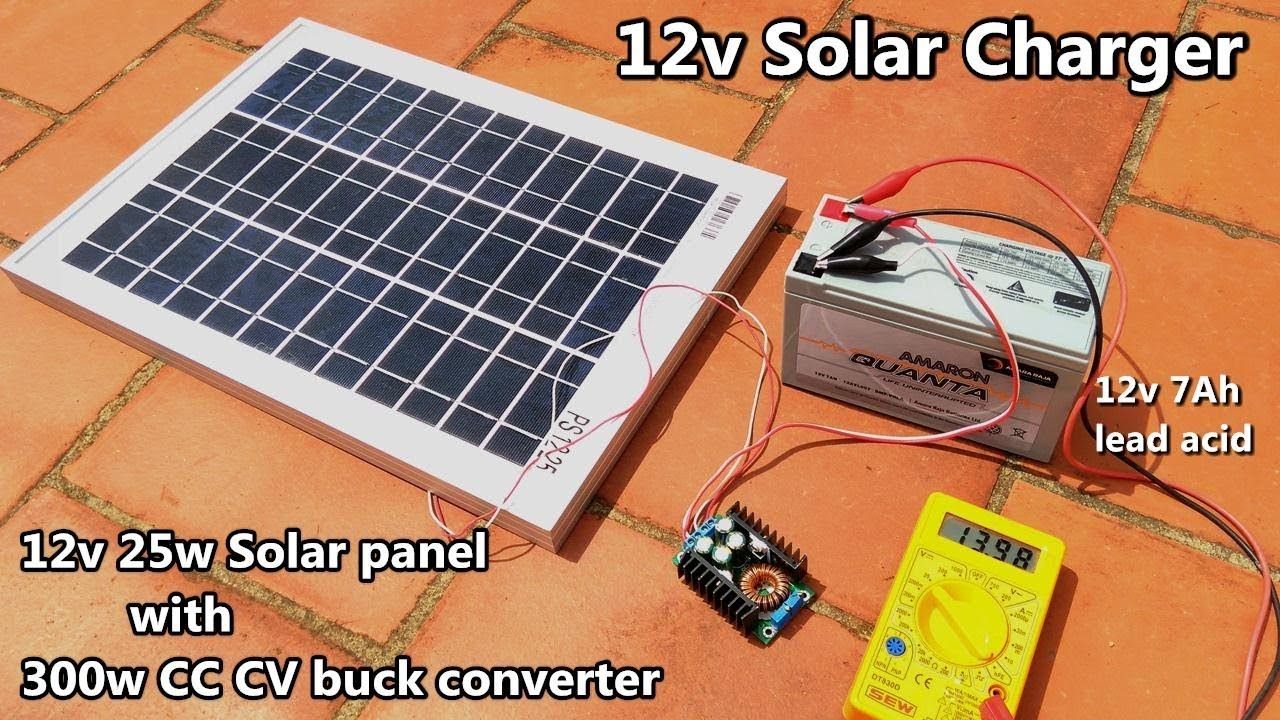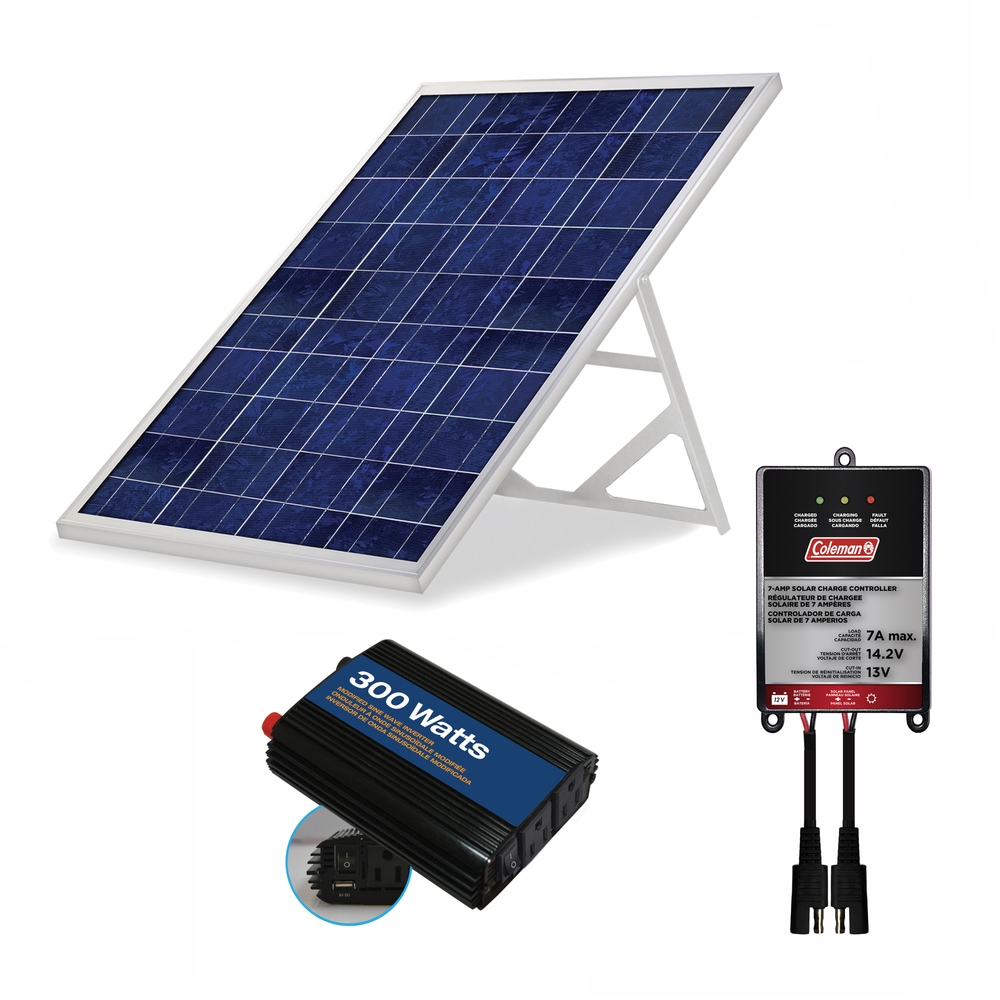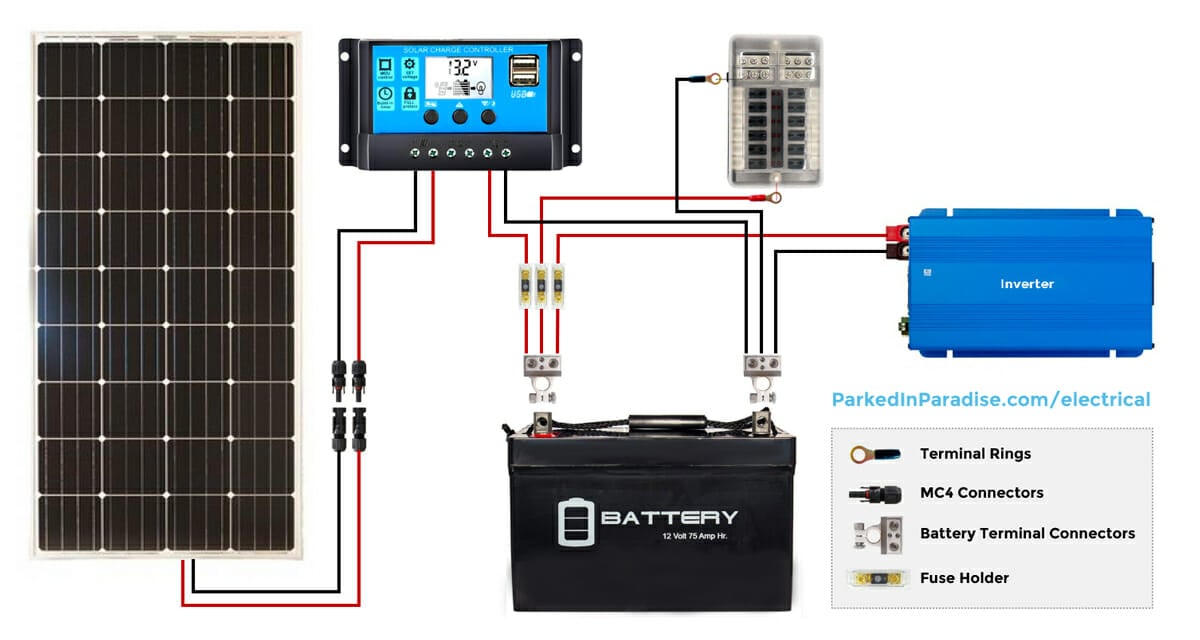Awe-Inspiring Examples Of Tips About Will 100W Solar Panel Charge A 12V Battery

How Long To Charge A 12V 7Ah Battery With Solar Panel New Jersey
Can a 100W Solar Panel Really Power Up My 12V Battery? Let's Break It Down
1. Understanding the Basics of Solar Charging
So, you're thinking about harnessing the sun's energy to charge your 12V battery? That's a fantastic idea! Solar power is clean, renewable, and, let's face it, pretty cool. But before you rush out and buy a 100W solar panel, let's get one thing straight: slapping a panel on a battery and hoping for the best isn't quite how it works. It's a bit like expecting your pet goldfish to win the Tour de France — ambitious, but probably not realistic without some preparation. A 100W solar panel can charge a 12V battery, but several factors determine how efficiently and effectively it will do so. Think of it like baking a cake; you need more than just ingredients; you need the right recipe, oven temperature, and a little bit of patience.
First, we need to talk about sunlight. Your solar panel's output is directly related to the amount of sunlight it receives. A panel basking in the midday sun in Arizona will perform much better than one shrouded in clouds in Seattle. Angle matters too! You'll want to position your panel for optimal sunlight exposure, which can change depending on the time of year. Finding the perfect angle might require a little experimentation, but trust me, it's worth it. Imagine it like trying to catch the last rays of sunshine on a cold winter's day — every little bit helps!
Then there's the battery itself. Is it a car battery, a deep-cycle marine battery, or something else entirely? Different batteries have different charging requirements. And how depleted is the battery to begin with? A nearly full battery will obviously charge much faster than one that's completely drained. It's like trying to fill a glass that's already almost full — it doesn't take much to top it off.
Also, you'll need to consider a charge controller. This is a crucial piece of equipment that prevents overcharging, which can damage your battery. Think of it as a safety valve, ensuring that your battery receives the right amount of power without getting fried. Without a charge controller, you risk shortening your battery's lifespan considerably, and nobody wants that!

The Crucial Role of a Charge Controller & Efficiency Considerations
2. Maximizing Your Solar Charging Potential
Let's dive deeper into this charge controller thing. It's not just a fancy gadget; it's the brain of your solar charging system. It regulates the voltage and current flowing from the solar panel to the battery, ensuring that the battery is charged safely and efficiently. There are two main types of charge controllers: PWM (Pulse Width Modulation) and MPPT (Maximum Power Point Tracking). MPPT controllers are generally more efficient, especially in colder climates or when the solar panel's voltage doesn't perfectly match the battery's voltage. Choosing the right controller can significantly impact the overall performance of your system. It's the difference between a leisurely stroll and a high-speed chase!
Now, about efficiency. Solar panels aren't 100% efficient. In fact, most commercially available panels are around 15-20% efficient. This means that only a fraction of the sunlight hitting the panel is converted into usable electricity. Other things such as wire gauge, and length can affect the amount of power that makes it to the battery. When sizing your system, it's important to factor in these losses and choose a panel that's appropriately sized for your needs. Underestimating your power requirements is like packing too little food for a camping trip — you'll end up hungry and disappointed.
Speaking of sizing, remember that a 100W solar panel theoretically produces 100 watts under ideal conditions. In the real world, however, you'll rarely achieve that peak output. Clouds, shade, panel temperature, and other factors can reduce the panel's performance. As a general rule of thumb, you can expect a 100W panel to produce around 5-6 amps in good sunlight. This is enough to charge a 12V battery, but it might take several hours to fully charge a deeply discharged battery. Think of it as a marathon, not a sprint — it takes time and consistent effort to reach the finish line.
So, will a 100W solar panel charge a 12V battery? The answer is yes, but with caveats. You need the right equipment (including a charge controller), optimal sunlight conditions, and a bit of patience. And you need to be realistic about the charging time. Don't expect to fully charge a dead battery in an hour. But with careful planning and a little bit of knowledge, you can successfully harness the power of the sun to keep your 12V battery topped up.

Coleman 100W OffGrid Solar Panel Kit With Stand & 7A Charge Controller
Real-World Scenarios
3. Understanding Limitations and Applications
Okay, so we've established that a 100W solar panel can charge a 12V battery. But let's get practical. In what situations is this a good solution, and when might you need something more powerful? A 100W panel is ideal for maintaining a battery that's already mostly charged, or for powering small devices that draw relatively little power. For example, it's a great option for keeping the battery in your RV topped up while you're parked, or for powering a small water pump in an off-grid cabin. Imagine it as a gentle trickle, keeping your battery healthy and happy.
However, if you need to charge a deeply discharged battery quickly, or if you're powering larger appliances with significant energy demands, a 100W panel might not be sufficient. Think about running a refrigerator, a high-powered inverter, or multiple lights for extended periods. In these cases, you'll likely need a larger solar array with multiple panels to meet your power needs. It's like trying to fill a swimming pool with a garden hose — it'll eventually get the job done, but it'll take a very long time.
Consider also the climate you live in. If you live in a sunny area with long days, a 100W panel might be perfectly adequate for your needs. But if you live in a cloudy area with short days, you'll need to compensate by using a larger panel or by supplementing your solar power with another source of energy, such as a generator. It's like planning a picnic — you need to adjust your plans based on the weather forecast.
Ultimately, the best way to determine whether a 100W solar panel is right for you is to assess your specific energy needs and compare them to the panel's expected output. Calculate how much power you use each day, and then factor in the amount of sunlight you typically receive in your area. There are plenty of online calculators and resources that can help you with this process. Doing your homework upfront will save you time, money, and frustration in the long run.

DIY vs. Professional Installation
4. Deciding on Your Setup Approach
Now that you're armed with some knowledge about solar panels and batteries, you're probably wondering whether you can tackle this project yourself or if you should hire a professional. The answer, as with most things in life, depends on your skills, experience, and comfort level. If you're comfortable working with electrical wiring and have a basic understanding of solar power systems, you might be able to install a 100W solar panel system yourself. There are plenty of DIY kits available that include everything you need to get started, along with detailed instructions. It's like assembling a piece of furniture — if you can follow instructions, you can probably do it.
However, if you're not comfortable working with electricity, or if you're unsure about any aspect of the installation process, it's best to hire a qualified solar installer. A professional can ensure that your system is installed safely and correctly, and they can also help you choose the right components for your specific needs. They will also be able to check your local electrical code requirements. Think of it as hiring a chef to cook a gourmet meal — they have the skills and experience to deliver a delicious result.
Even if you decide to go the DIY route, it's a good idea to do some research and familiarize yourself with the basics of solar installation. Watch online videos, read articles, and consult with experienced solar enthusiasts. The more you know, the better equipped you'll be to tackle the project successfully. It's like learning a new language — the more you practice, the more fluent you'll become.
Regardless of whether you choose to install the system yourself or hire a professional, always prioritize safety. Disconnect the battery before working on any electrical components, and wear appropriate safety gear, such as gloves and eye protection. Electricity can be dangerous, so it's always better to be cautious than to take risks. Think of it as driving a car — always wear your seatbelt and follow the rules of the road.

What Size Solar Panel To Charge 12V Battery? Footprint Hero
Maintenance Tips to Keep Your Solar System Humming Along
5. Ensuring Long-Term Performance
So, you've installed your 100W solar panel system and it's working like a charm. Congratulations! But the work doesn't stop there. To ensure that your system continues to perform optimally for years to come, you need to perform regular maintenance. Fortunately, solar panel systems are relatively low-maintenance, but there are a few things you can do to keep them in top condition. Think of it as taking care of a garden — a little bit of weeding and watering can go a long way.
The most important thing is to keep the solar panel clean. Dust, dirt, leaves, and bird droppings can all reduce the panel's output. Regularly clean the panel with a soft cloth and water. Avoid using harsh chemicals or abrasive cleaners, as these can damage the panel's surface. A squeegee works wonders! It's like washing your car — it looks better and performs better when it's clean.
Also, inspect the wiring and connections regularly to ensure that they're tight and free from corrosion. Loose connections can cause voltage drops and reduce the system's efficiency. If you find any corroded connections, clean them with a wire brush and apply a corrosion inhibitor. Replace any damaged wiring immediately. Think of it as checking the tires on your car — you want to make sure they're in good condition before you hit the road.
Finally, monitor your system's performance regularly. Use a multimeter to check the voltage and current output of the solar panel, and compare it to the manufacturer's specifications. If you notice a significant drop in performance, it could indicate a problem with the panel, the wiring, or the charge controller. Addressing these issues promptly can prevent them from escalating into more serious problems. It's like getting a regular checkup at the doctor — early detection can save you a lot of trouble down the road.
